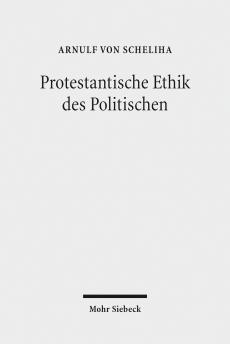Political Ethics in German Protestantism

The Protestant theologian and social ethicist, Prof. Arnulf von Scheliha of the Cluster of Excellence “Religion and Politics“ has provided the first comprehensive description in sixty years of political ethics in German Protestantism, from the Reformation to the present. On this basis, Prof. Scheliha develops a systematic doctrine of principles and examines contemporary issues of political ethics.
Working from a concept of politics rooted in action theory, in the historical section of the book he presents the history of political ethics from the Reformation to the Evangelical Church in Germany’s 1985 memorandum on democracy. “A focus of the book is the change in the understanding of the state, which required adapting the Reformation doctrine of the two ways of God’s reign,” the scholar explains. He grants particular importance to the contributions of theological liberalism and the Enlightenment, as represented by thinkers such as Friedrich Schleiermacher, Richard Rothe and Ernst Troeltsch. “They contributed decisively to solving the philosophical problems that this change posed.”
Christian Freedom as a Starting Point
The social ethicist develops a systematic doctrine of principles as it relates to the present, and reveals how the concept of Christian freedom leads to a theory of duties, goods and virtue. “The interpretation of freedom as an ethical duty can be divided into various dimensions: human dignity, culture, responsibility, and justice,” Prof. Scheliha explains. At the centre of his discussion lie civil society, democracy and a concept of justice interpreted in procedural-ethical terms. To explain his ethical doctrine of virtue, the theologian develops a concept of Christian responsibility and discusses its significance for political action in a civil society and in the modern multi-level state. In the final section, the author deals with crucial topics in the present political discourse and substantiates the scope of the approach with examples such as ‘Ostracism of Violence and Creation of a Just Peace’, ‘Europe’ and ‘Good Governance’.
Literature: Scheliha, Arnulf von: Protestantische Ethik des Politischen, Tübingen: Mohr Siebeck 2013.

